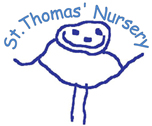This is an interesting article taken from “Nursery World Magazine” to promote our current focus on Dental Health and healthy approaches to weaning and healthy eating.
The prolonged use of baby bottles or using the wrong style of infant cup – coupled with unhealthy drinks – can cause dental decay in young children and health problems, including obesity, in adult life. In response, the British Dietetic Association (BDA) has launched a policy for ‘Introducing a Cup to an Infant’s Diet’.
In it, the BDA recommendations are:
– ‘A cup can be introduced to an infant at around five to six months of age, once the infant is sitting up and able to hold their head steady.
– An open cup should fully replace a bottle at around one year of age.
– The cup should be made of appropriate food-safe plastic material, have two handles and preferably no lid.
– A free-flow, lidded beaker is also suitable, but the lid should be removed as soon as the infant has learnt how to drink. Cups and beakers with non-drip valves are not suitable.
– A small amount of water or milk (breast or formula) should be offered in a cup initially.
From one year of age, full-fat cows’ milk can be offered. Milk and water are the best drinks for children.
– Juice or squash are not required by infants, but if they are given they should be diluted one part pure juice to at least ten parts water, given only at mealtimes and in an open cup.
– For children over one year of age, flavoured milk and smoothies should also only be given with meals (not between meals) and from an open cup.
– Other drinks, including squash, flavoured milks, smoothies and fizzy drinks, are not recommended for infants or toddlers. If these are given, they should be restricted to mealtimes, given in an open cup, and squash should be very well diluted with at least ten parts water.
– The consumption of fizzy and/or sugary drinks should be minimised.
– Tea, coffee and hot chocolate contain caffeine. Do not give these to infants or young children.
– A lidded cup or bottle should not be given to infants to help them get to sleep.
– An infant should never be left alone when drinking and they should always be sitting upright. Solid food (for example, rusk or baby rice) should never be put into a cup or bottle.’
Policy author and member of the BDA’s Public Health Nutrition Network specialist group Elaine Gardner says, ‘There is a compelling case to introduce cups to infants at the appropriate age to combat tooth decay that occurs due to prolonged bottle use, especially if the child sleeps with a bottle. The inclusion of sugared drinks in bottles with frequent sipping from bottles during the day is also a risk factor for severe dental caries. A prolonged use of bottles and excessive intake, including milk, are also emerging as risk factors for obesity in young children.’
The full policy can be accessed at: www.bda.uk.com/improvinghealth/healthprofessionals/policystatements.

No comments yet.